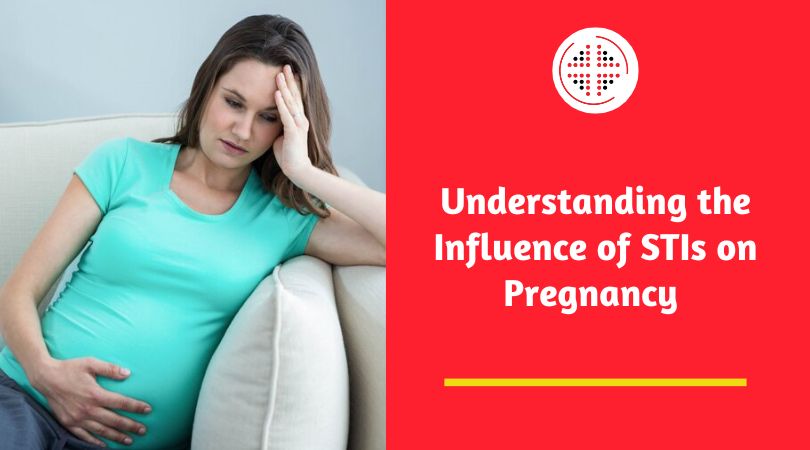


The journey of pregnancy is often filled with excitement and anticipation. But what if it is connected with STIs (Sexually Transmitted Infections)? STIs and pregnancy are intimately linked with adverse impacts on both maternal and fetal health. This connection underscores the importance of comprehensive sex education, routine screenings, and timely intervention.
Continue reading to get a thorough understanding of STIs, their causes, types, symptoms, potential impacts on pregnancy, diagnosis, treatment, and preventive measures.
STI or Sexually Transmitted Diseases (STDs), is a prevalent health concern worldwide, affecting millions of individuals, including pregnant women. STI encompasses a diverse range of infections transmitted through unprotected sexual contact, including bacterial, viral, and parasitic pathogens. Common examples of STIs may typically include HIV/AIDS, gonorrhea, hepatitis B, syphilis, etc.
Though STIs spread through intimate contact with an infected partner, the main culprits are the microorganisms, which may include:
STIs are classified based on their cause and routes of transmission. Here's a breakdown of the most common types:
Other infections linked with sexual contact include:
While each STI has unique characteristics and symptoms, they share the potential to impact individuals or pregnant women directly or indirectly.
Depending on the type of infection, common symptoms of STIs may include:
When it comes to pregnancy, STIs can pose various risks and complications depending on the pregnancy period. However, pregnancy itself doesn't cause STIs. Having an existing STI can lead to complications for both mother and child. The World Health Organization (WHO) estimated that more than 1 million pregnant women were infected with STIs, resulting in adverse birth outcomes.
Potential risks associated with STIs during pregnancy may include:
STI diagnosis typically involves a series of tests, including medical history, physical examination, and lab tests such as blood tests, urine tests, or fluid samples from the genitals.
Specific screening tests are also recommended for different individuals, which may include:
On the other hand, STI treatment mainly depends on the type of infection. Infections transmitted through bacteria are generally easy to treat, whereas those caused by viruses can be managed but not fully cured. People with STIs are commonly treated using Antibiotics and Antiviral drugs.
However, considering the importance of early detection and treatment is crucial, especially for those who are sexually active or planning for pregnancy.
The most effective way to prevent STIs is by practicing safer sex and taking proactive measures to reduce the risk of STIs.
Here are some of the key strategies:
STIs are common health concerns with implications for individual health and pregnancy outcomes. However, you can significantly reduce the risk with proper knowledge and practices. If you suspect or get diagnosed with STI, do not hesitate to consult a doctor. With early diagnosis and treatment, you can prevent serious health concerns and protect your sexual partner, fulfilling your sexual life.
At MI Express Urgent Care in Ann Arbor & Canton MI, we provide fast and effective treatment options for STIs and pregnancy. We understand the importance of addressing STIs and providing specialized care and treatment for your well-being. We offer a wide range of women’s health services for all ages.
Contact us today if you are concerned about STIs and want assistance living a healthy, stress-free life.